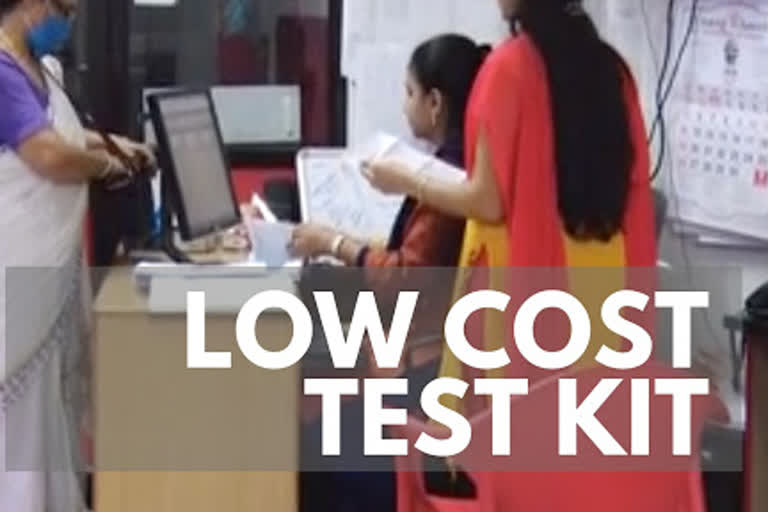Thiruvananthapuram (Kerala): At a time when India is focusing on acquiring medical supplies and testing kits as part of its efforts to combat COVID-19, scientists at the Rajiv Gandhi Centre for Biotechnology (RGCB) have developed low-cost rapid screening kits and are awaiting approval from the Indian Council of Medical Research (ICMR).
These COVID-19 testing kits take only 20 minutes to conduct tests and provide results at a maximum cost of Rs 600.
RGCB developed these kits in collaboration with a private biotechnology firm Ubio Biotechnology Systems in Kochi.
Currently, India relies on Reverse Transcription Polymerase Chain Reaction (RT- PCR) technique for COVID testing. Each test in this manner costs between Rs 4000 and Rs 6000, and the time taken to determine the results are at least 4 hours.
For an RT-PCR test, a throat swab of the suspected patient has to be taken. The test also requires specific laboratory standards and experts to do the testing. In effect, the samples taken from suspect cases in different parts of the country have to be brought to the RT-PCR approved laboratories elsewhere for testing.
Even Kerala, which currently has the highest testing rates compared to all other states in India, has only seven approved testing centres for COVID.
RGCB’ testing kits can put an end to all these hitches and delays in our COVID testing regime.
Also read: How are Pune's old age homes fighting Covid?
The new kit requires just a drop of blood from the person testing as the sample for the testing. The test is based on antigen-antibody reactions and does not require the presence of expert lab technicians or doctors. The test can be performed by ASHA workers or volunteers with minimal training. It is as easy as testing the sugar levels using a glucometer, claims RGCB authorities.
Once the blood sample is applied on to the strip in the test kit, experts can read the results, whether it is positive or negative, within the first five minutes itself.
This screening kit is expected to be crucial in mass testing. Contact tracing of those who test positive can also be done swiftly, thereby checking the spread of the pandemic more effectively.
Another advantage of the RGCB test kit is that it does not require a standard laboratory set up. The test can be carried out from anywhere. The government can set up screening counters at places like airports, railway stations, check posts and all such entry points.
Besides, the Non-Resident Indians who are to return to India can be screened at the airports itself. Based on the results, they can be categorised as high risk and low risk and quarantined accordingly.
Though preliminary screening is possible with these kits, those who test positive on the antibody testing will have to undergo PCR testing as well to be conclusive.



